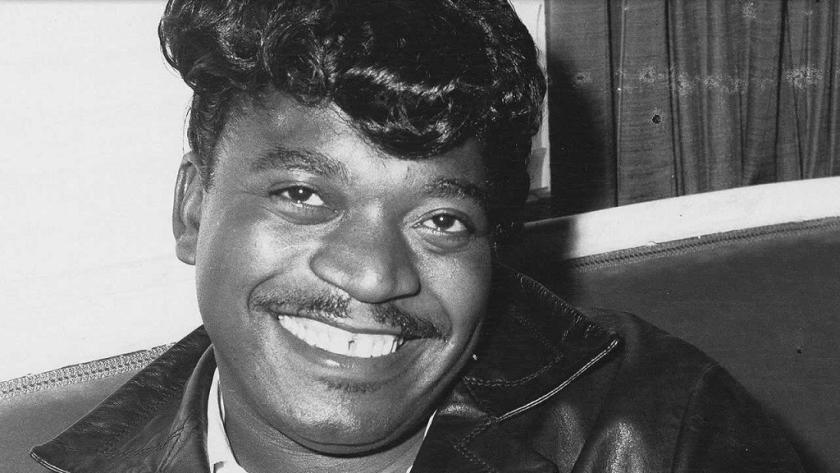No soul singer has been associated with one hit in quite the same way. Percy Sledge, who died last week at the age of 74, recorded “When a Man Loves a Woman” in 1966 and launched himself as a tearful balladeer. Its simple chord structure, featuring a descending bassline familiar from Pachelbel and Bach, was the bedrock over which Sledge howled plaintively of a lost love. There were other hits, until his producers retired in 1974 just as soul music was going priapic, but the first cut was always the deepest.
When I met Sledge in 1994 he had his first new album out in 20 years. He was a delightful man, short, round and modest with a lovely gap-toothed smile. We talked about what he’d been up to in the interim, but inevitably the conversation drifted back to one of the greatest songs in the history of soul music. Its genesis was complicated, and its authorship always disputed. But the way Sledge told the story (generously, for the umpteenth time) it was very much his own work, put together with a little help from his friends, to whom he gave the rights. There are other versions of the story, but this is how Percy Sledge remembered it.
Percy Sledge sings 'When a Man Loves a Woman' in 1966
JASPER REES: How did the song come about?
PERCY SLEDGE: It was a true story about my life when I put it together. It looked like that song just come out of heaven. It was just meant to be, you know. And I think it was meant to be sung by one person, that's Percy Sledge. I mean for the first time, to the world. It had to be a certain person for that type of song. Anybody couldn'ta had a type of personality, the kind of love in their heart, to do this type of song.
Who were you singing about?
I was singing about my girlfriend Lizz King when we was in school. She was in 12th grade and I was in the 10th grade. I was popular with girls in school. Good at football, baseball and basketball. And this girl, well she graduated in ‘56, I graduated in ‘58. I had seen her 'bout one time after she graduated. She had been out of school four years and I had been out like two years, and I hadn't seen her or nothing. So I went to work at Colbert Country Hospital at Sheffield, Alabama as a male nurse and my friend Simon, he was a janitor there. So he was going out that weekend on a Saturday night, and he asked me to go with him on a blind date. And the blind date was Lizz. When she come to the door she said, “I'm not going anywhere with that guy.” She's still taking me for something like a little boy, so Vera and Simon went in the house and talked to her and Vera tells her, “Look, you can't call him a little boy cos he's a grown man. You always say you told me you liked him and now you're going to say you don't like him.” So she finally talked her into going out with me, and so we started going steady and she kind of confessed that she'd always liked me but she was too shy to let me know after she let me down so many times. So we fell in love with each other.
We dated about two or three more years, and I had to go to Chicago and I told her, “Lizz, I'm going to go out of town for the summer and I'll see you when I get back, OK?” So when I get back she was gone. She left with another guy. And I couldn't believe this, not with the type of thing that we had finally got together and I know how I felt about her and I knew how she felt about me after we started dating.
When I told her that I wrote it about her she could not believe me
I remember trying to make more money in construction as the Colbert County Hospital weren't paying me enough money, you know, to do what I wanted to do. And the guys on the job was teasing me about, well, “Percy, when the whistle blows this evening your buddy's going to be poor.” You see everybody teased you when you were going to get laid off before they did. They was just joking, cos everybody was friends. And I said, “OK guys, next time you all see me I say I'm going to be driving a Cadillac. Sure enough when I get home that afternoon the telephone rings, and that was JR Richard, the leader of the Esquire [Combo] band. He asked me if I would come in and sit in for his singer. I said, “Man, you must be kidding; I ain't sung since I graduated from school and that was years ago.” And you know I sang on the job with the guys cos they loved to hear me sing and all that like I did at school, you know. He said, “I'll pay you $50.” I said, “Fifty dollars!” I was bringing 'bout $110 home and I had to work construction work for five days a week. And you're going to pay me $50 to come and sing a song or two in one night. Man I went over there and I was so happy just thinking of the money cos I really didn't think I could sing without thinkin' of them $50. But I went over there and started to wail away on "Six Three Four Five Seven Eight Nine", that old Wilson Pickett song, and I did a coupla Fats Domino songs and three of the Beatles' songs, cos the Beatles were so hot at that time, and everybody wanted to hear the Beatles.
Can you remember which Beatles songs they were?
[Singing] Do you love me yeah yeah yeah, that was one of them. I'd remember all if I had to think about it, but anyway people acted like they were so crazy about me, you know, so I tell [Calvin] Lewis and [Andrew] Wright, I say, “Hit me a note on the keyboard and the bass,” and Lewis said [singing], “Boom, boom, boom, boom,” and I was still thinking about Lizz and I said [singing] “Why did you leave me, baby, when you didn't have to go?” So it just happened that Quin Ivy, that produced “When a Man Loves a Woman” on me, he was at that party that night and he came back there after the show was over and he said, “Man, what in the world was that song that you were singing, something about why did she leave me or something?” And I said, “Man, I don't know, I just made it up on the stage,” and I did. I mean the words they just come out whatever come to my mind.
And how about the melody?
And the melody, they just come out of my mouth and Lewis and Quin was standing playing the bass and the keyboard and that's all was going for about three and a half minutes or so and we just cut it and went on to the regular song. So he said, "Man, you must write some lyrics behind that." He said, "What a song." He said, "I'm going to put up a studio and you'd be one of my first artists; I'd love to cut that song." Well what did I know about writing lyrics to a song? I can't play no instrument, this is the first time I ever sung in front of a crowd before in my life, but I was excited. I went home and told my momma, “I'm gonna cut me a record.” She said, “Oh son, please, don't come here with that stuff, you know.” She always wanted me to sing spirituals, not no blues.
Sure enough, boy, I go home and about two or three weeks later I'm sittin' in that house and I mean it was rainin', and we lived in one of those tin-top houses, and I just wailed off and I wailed off, “Why did you leave me baby?” I even used the name Lizz. “How could you do me this way?” And I couldn't come up with nothin'. And so I went back to Quin about a month later and I told Quin, I said, “Quin, I can't think of nothin' to go with that melody. All I can think is, ‘Why did you leave me, baby?’” He said, “Well do you remember the melody/” I said, “Yeah, I remember the melody.” He said, “I tell you what, I'm going to Marlon, that's Marlon Green, I'm going to get him to get a guitar and we're going to put down a rough demo with the melody so you won't forget it and we'll write a song around it.” I said, “Yeah I'm sorry but you've no idea as when a man loves a woman he can't even think right.” And I was so crazy about Lizz I couldn't think about no words and he said, “Wait a minute, what you say?” I said, “You no idea when a man's crazy…” He said, “No, what did you say? You said, ‘when a man loves a woman’.” I said, “Yeah, I said he can't think.” I said, “He'd do anything she wants him to do, he'd even go sleep out in the rain if she wanted him to do it. All she got to do is say.” He said, “Why, hell, that's it. That's the song. You know, write around ‘when a man loves a woman’. You know how you feel about her, right?” I said, “Yeah.”
He said, “Look, we're going to put out a rough demo, you take it home and write around that.” And I took it home and about three weeks later I had the bridge there, I had two verses there except for two lines. And him and Marlon helped me put that there.
Older and lower: Percy Sledge sings 'When a Man Loves a Woman' in a tuxedo
Which two lines?
They was, “Turn his back on his best friend if he say that's the way it ought to be.” That was the line that Marlon and Quin put in there because I didn't hardly know.
When you recorded it you did a second version with the Memphis Horns.
Here's what we did. We cut the session and then we shipped the session to New York, to Jerry Wexler, Atlantic Records. OK, when Jerry Wexler called Quin back and told Quin and said, “Look, say you guys have got one of the greatest songs I've ever heard in my life. The only thing wrong with it is you think you could cut it one more time and let Percy pronounce the words more clear? There's a coupla lines in there you can't tell exactly what he's saying. If you do that, he said you've got one of the biggest records in the world.” Now he said this. Ok, so we cut it one more time and sent it back to New York to him and he called us back and told us, “Congratulations, y'all got a monster.” But we never did change the track. We kept the same track so what I did was just overdubbed behind the track.
You don't have a writing credit on the song at all. Why did you give it away to Lewis and Wright?
Well, they was good friends of mine at that time and I didn't know anything about music at all and I just really gave it away by mistake. I wanted them to have some of it, but if I knew it was going to be that big as it is now and all through my life I would never have gave it all to them like that.
You could have been sitting on a very large pile.
Oh forever, with a song like that. No, the only thing I regret was that I just didn't know enough. The two guys that got it, I'm happy for 'em. It's a classic. It'll always be there. It'll be cut a million million times, but there'll never be a cut like that one.
How did Lizz react when she heard the song?
So finally, after I cut the record, I found Lizz, and when I found her she was in Newark, New Jersey, and when I went upstairs where she was in her apartment the first thing I said was, "How did you ever do me like this?" She said, "What you mean?" And I said, "How could you ever leave me like with another guy and all that?" She replies, "I ain't seen you in a year and a half." I said, "But how could you leave me? I told you to wait for me." She said, "No, I didn't leave you. I come up here to work. I been dating that guy right over there cos I didn't think you was ever comin' back." She said, "But I told him, I said if he does come back that's the boy that I love." He was sitting right down on the couch. What made me feel so good was she told me the truth.
What did she say about the song when she heard it on the radio?
She told me that she knew that the voice was mine. She knew, before she ever heard at the end of the song it was Percy Sledge singing this song, She said she knew it was my voice cos she grew up with my voice at school. Sure enough at the end of the song they said, "New star, Percy Sledge." So they jumped up shoutin' and when I told her that I wrote it about her she could not believe me cos she didn't ever leave me nowhere.
Did you ever go out with her again?
Oh yeah, we dated a couple more years then she went a different way in life. She's a big spiritual person. She don't date no more, nothin', she don't even fool with boys or nothin' no more.
How many times have you told that story?
Oooh, so many times. It's the God's truth in heaven.















Add comment